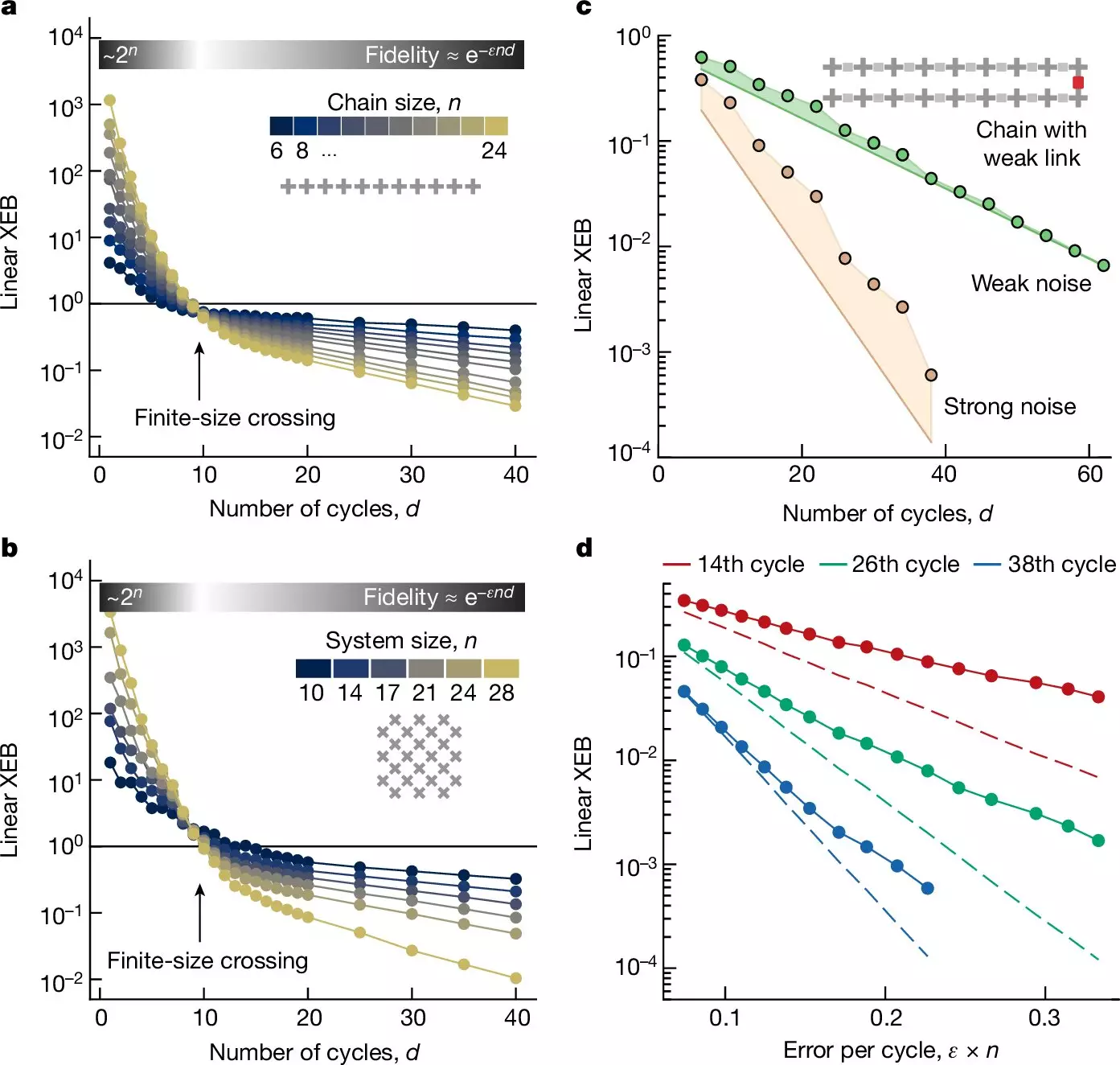In the ever-evolving field of quantum computing, recent breakthroughs have illuminated the path toward what many researchers deem “quantum supremacy.” A group of engineers, physicists, and quantum specialists at Google Research has made significant strides by optimizing their sycamore quantum chip’s performance against classical computing systems, particularly in the realm of random circuit sampling (RCS). This success is emblematic of decades of effort in the pursuit of a quantum computer that can outperform classical models in solving complex problems far beyond their capabilities.
One of the most substantial barriers to achieving practical quantum computing lies in managing environmental noise, which can skew the results of quantum computations. Such noise can originate from various sources, including temperature fluctuations, magnetic interference, and cosmic radiation, creating a labyrinth of complexities for researchers. Traditional computers can often cope with such noise, but quantum systems operate on exponentially fragile principles, making them particularly susceptible to errors. As a result, addressing this issue has been pivotal in quantum research, leading scientists to explore various error correction methods and noise reduction strategies.
In their recent research published in *Nature*, the Google team explored novel approaches to mitigate noise interference during the operation of their chip. Their experiments involved placing the quantum processor within a chamber cooled to near absolute zero, dramatically reducing the external noise exposure. This reduced interference resulted in a compelling increase in performance capability. The researchers demonstrated that incrementally improving error rates—from an impressive 99.4% to an even more remarkable 99.7%—led to transformative enhancements in the sycamore chip’s output.
The term “quantum advantage” refers to the point at which a quantum computer can solve problems that classical computers cannot, or do it significantly faster. By meticulously decreasing noise levels, the team achieved this quantum advantage while executing RCS tasks. This finding has broader implications for the future of quantum computing, confirming that with persistent refinement and innovative research, scientists are edging closer to creating a revolutionary computational tool capable of handling tasks previously thought impossible.
While the progress showcased by Google Research reflects a substantial leap towards practical quantum computing, it also highlights the continuing challenges ahead. Researchers are focused on converting these advancements into reliable, scalable quantum technologies that can solve real-world problems. With the increasing development of algorithms designed to leverage both classical and quantum computing, the ongoing dialogue between these two fields will undoubtedly foster a new era of computational capability.
Google’s recent breakthroughs in quantum noise reduction and RCS performance not only underline their pioneering role in this field but also illuminate the pathway forward. Through collaborative efforts and relentless trial, this journey towards a truly functional quantum computer is becoming more tangible, bringing hope and excitement to a technology that holds the potential to redefine our computational landscape.


Leave a Reply